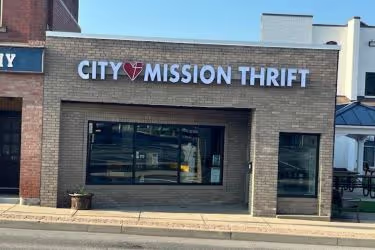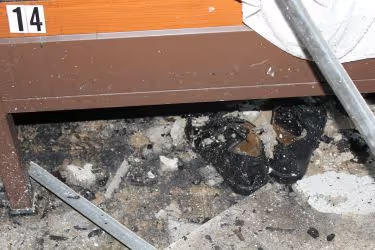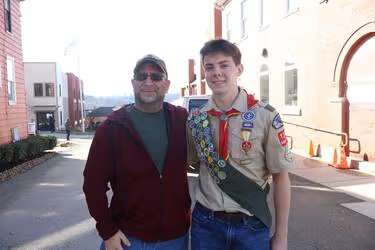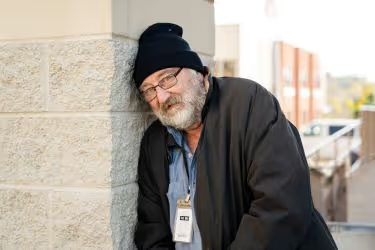City Mission Announces March 2024 Retirement of CEO and Names Successor
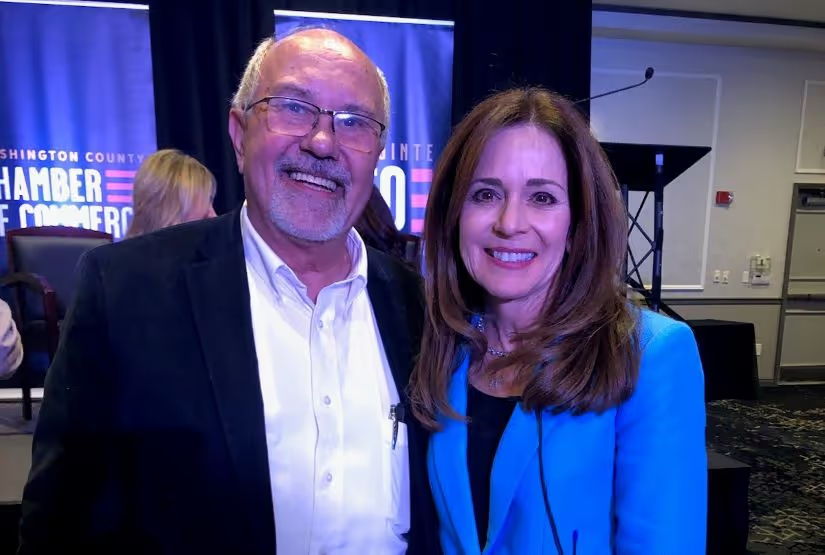
After fifteen years of service to City Mission in Washington PA, Dean Gartland, current President/CEO, will change his role to President Emeritus starting March 1, 2024. After assisting the Mission with its important leadership transition, Gartland plans his full retirement after September 30, 2024.
Starting at the mission in 2008, Gartland served as Director of Programs and Vice President before assuming the President/CEO position in 2010. Under his leadership tenure, City Mission increased its available beds from 96 to 175, and increased its annual budget from $2.5M to $8M.
After a devastating fire in 2015, Gartland supervised the $18M capital campaign that established the four main individual shelters the mission has today: Men,Women, Women with Children, and Veterans. During this campaign he provided the vision necessary to recognize the growing needs in the homeless population, which added two additional shelters: Veterans and Women with Children.
City Mission’s growth was due in part to Gartland’s cultivation of large Pittsburgh-area grants such as FHLB-Pittsburgh, RK Mellon and the Allegheny Foundation. Another contributor to growth is his relentless pursuit to get the word out about the works of the mission and innovations such as his “Hope for Homeless” podcast. His development of an outcomes measurement system for the mission has been a proven tool to showcase the mission’s success, both in his grant and relationship work for the mission.
“We have a great model for moving the homeless men and women to independent living that allows us to keep robust outcome measures in Housing, Employment, Income, Recovery, and Spirituality (HEIRS),” he said. “Grants and Foundations are always looking to the end results of their investments, and we’ve been able to provide important metrics that prove the efficacy of our programs.”
Among his achievements for City Mission, Gartland also established a 60,000 square foot Vocational Training Center/Donation Center and expanded City Mission’s network of Thrift Stores from three to eight.
“Our ThriftStores give all profits back to the Mission,“ he said. “Last year, they provided $500,000 to programs and services for the homeless.”
Gartland will serve as President Emeritus at City Mission from March 1, 2024, to September 30, 2024, working in an advisory capacity to the board and senior leadership team, and serving as a fundraiser for the new 50-bed shelter for homeless women that the City Mission is building in 2024. City Mission considers itself blessed to have benefited from Gartland’s years of service and dedication, which has positively impacted thousands of lives around our region.
When Gartland announced his plans for retirement a year ago, City Mission’s Board of Directors went through the detailed process of selection, and they identified Diana Irey Vaughan as Gartland’s possible successor. Gartland agreed she is the right person to lead City Mission.
Now City Mission is proud to announce that Diana Irey Vaughan has accepted the role as President/CEO starting March 1, 2024.
Gartland says, “I am happy Diana has agreed to serve in this important role. City Mission's board and leadership team have worked closely with Diana over the years on large projects, and we are confident she will provide the leadership that is necessary to continue restoring lives through the mission’s programs and services.”
Elected County Commissioner in 1995, Irey Vaughan is Washington County’s longest-serving Commissioner, now serving her seventh term of office; she is also the only woman to have ever served in this position.
She is a leader in economic development, establishing a public-private partnership in 1999 with the Washington County Chamber of Commerce that created a unified delivery system for economic development efforts. She played a key role in the development of Southpointe I and II, having co-chaired the Western Center Land Reuse Task Force, and has been instrumental in the progress of California Technology Park. She was named one of the top “60 Pittsburghers of the Year” by Pittsburgh Magazine in 1999.
Through her insistence on long-range planning, low tax rate, and a unified economic delivery plan, Irey Vaughan has helped to foster an environment that brought more than 6,000 new jobs, ranking Washington County third in the nation in job growth by U.S. Department of Labor in 2010.
Irey Vaughan is also well-known for her support of area humanitarian efforts, charities, and non-profits. She has served on numerous boards and task forces during her tenure that benefited the region. She also won the Washington County Athena Award in 2014 and the American Legion Medal of Honor in 2015. In 2017-2018, Irey Vaughan served on the City Mission Capital Campaign Steering Committee and raised over $100,000 for City Mission through her long-distance runs.
Upon accepting this new role, Irey Vaughan says, “City Mission has long been a valuable asset to our community, caring for our neighbors in need and transforming lives now and for eternity. I am humbled and honored to be chosen as the next President/CEO of City Mission.”
With all of Irey Vaughan’s experience and knowledge of the region, coupled with her desire to help those in need, City Mission looks forward to her leadership to continue to build on the mission’s 82-year history and take it into the future.


